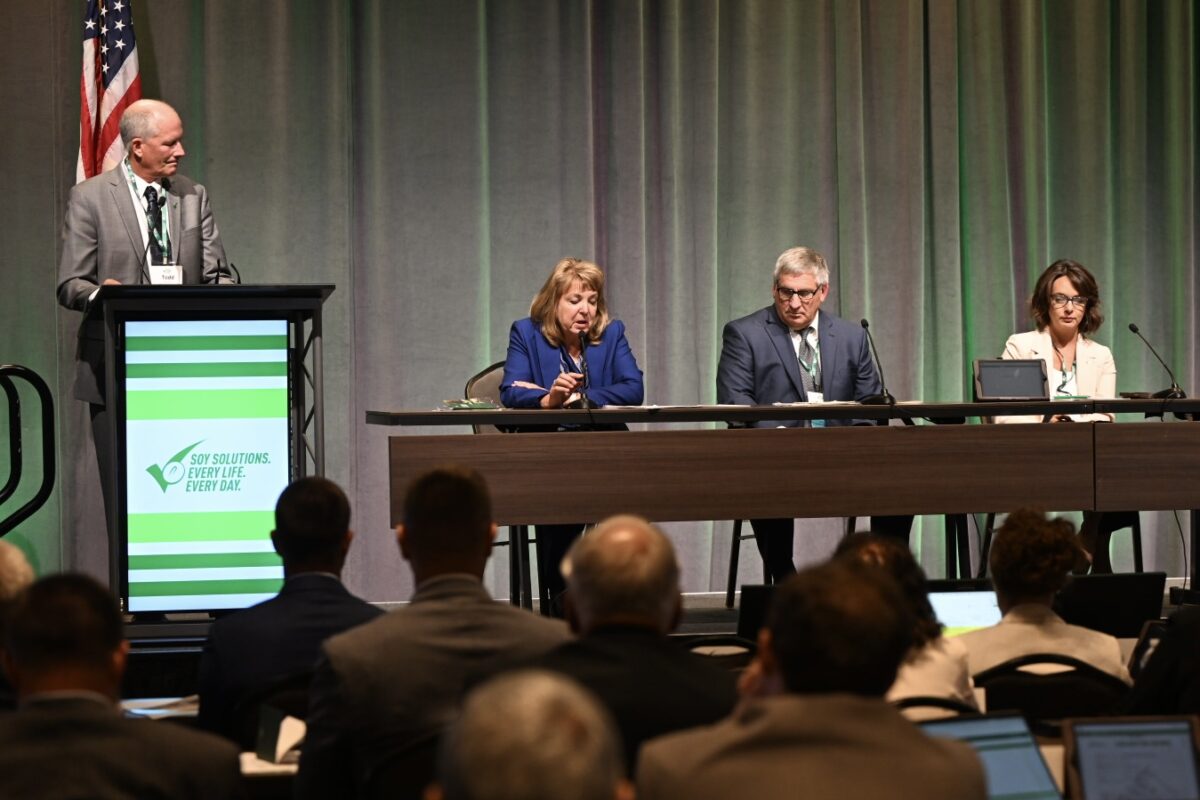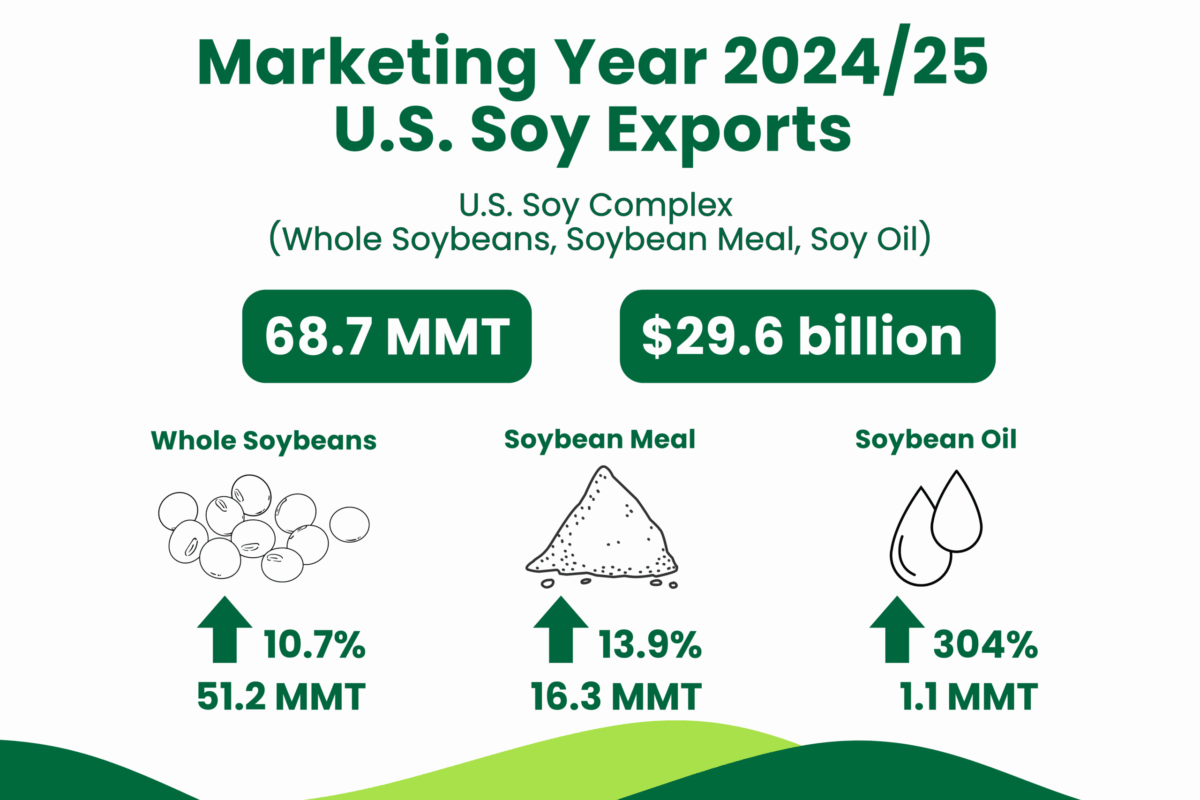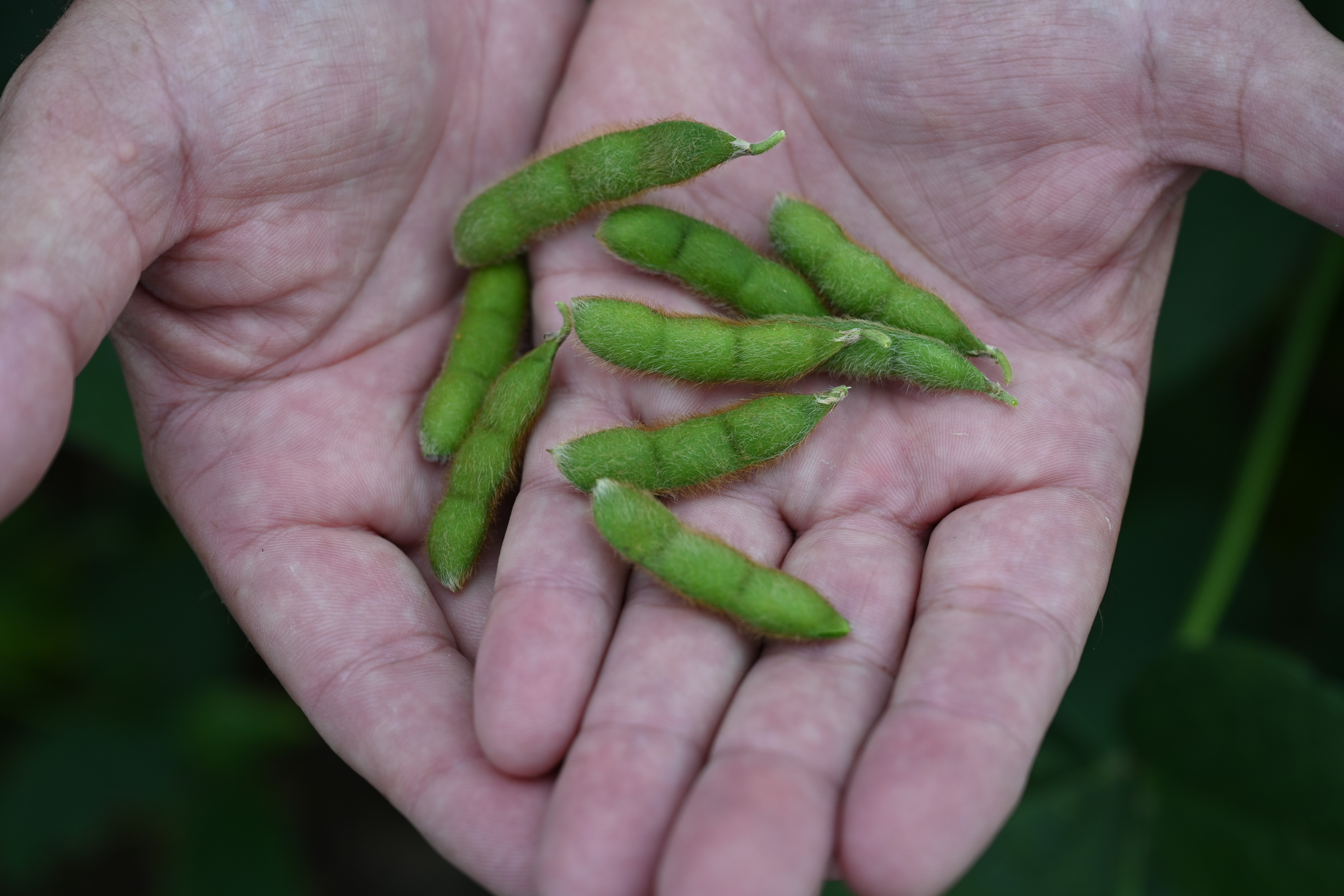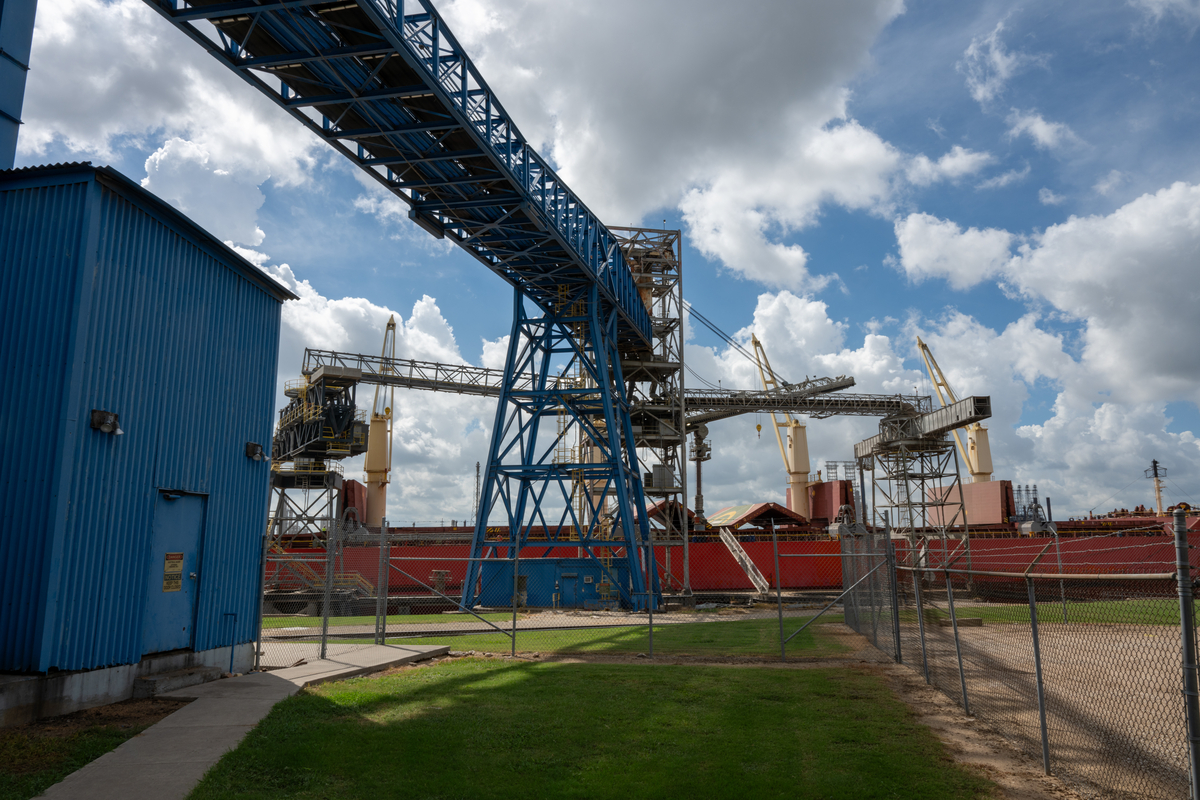United Soybean Board Approves FY26 Budget to Strengthen Demand and Resilience of U.S. Soy

Norfolk, Va. (July 21, 2025) — In the year ahead, the United Soybean Board (USB) will boost demand for U.S. Soy, drive on-farm resilience and bring value to the nearly half a million U.S. soybean farmers. Led by its 77 farmer-leaders, USB recently approved a $121.3 million budget for the 2026 fiscal year, strategically allocating funds across vital research, promotion and education investments. This spans the food, feed, fuel, industrial, exports and sustainable production market segments.
“Just like we have done on our farms across the country, USB’s farmer-leaders have sharpened their pencils, identifying high-impact opportunities that provide return to America’s soybean farmers,” said Philip Good, United Soybean Board Chair from Macon, Mississippi. “Times are tough right now in the farm economy, and I can speak from experience dealing with the wettest growing season in my farming career. As soybean farmers navigate trade and input uncertainty, along with unpredictable weather, the Soy Checkoff aims to be the long-term, steady hand on the rudder. We’re looking 5-10 years out to ensure that U.S. farmers have viable markets and innovation to protect against weather, weed and disease pressures.”
The board approved the budget during the organization’s July meeting in Norfolk, Virginia, prioritizing strategic investment in several areas such as animal health and nutrition, infrastructure, production research and international trade. In addition, the board focuses its communication & education efforts on strengthening the reputation of U.S. Soy with customers, amplifying checkoff investments to inform U.S. soybean farmers and partnering with the 30+ state soybean boards on research and outreach.
Key investments USB is prioritizing in the coming fiscal year include:
- Food: Expanding high oleic soybeans as a strategic ingredient for the food industry. By leveraging gene editing for faster innovation, this strengthens the domestic supply chain and meets the growing demand from food manufacturers for functional oils that provide heart-health benefits.
- Feed: Advancing and deploying research and marketing to enhance demand of U.S. soybean meal by supporting health, productivity and profitability of livestock and poultry production.
- Fuel: Positioning U.S. soybean oil as the preferred feedstock to meet the renewable volume obligation of 5.6 billion gallons of biomass-based diesel in 2026. USB aims to expand soy’s biofuel footprint through research demonstrating soy’s low carbon intensity and lifecycle greenhouse gas emissions. In addition, investments will increase the overall renewable fuels market through new market development, with soy-based biofuels playing an important role in biodiesel, renewable diesel, Bioheat®, and the marine, air and rail markets.
- Industrial Uses: Furthering the commercialization of new soy-based technologies with the greatest potential to drive soybean demand. This includes expansion of soy oil-based lubricant and surfactant product lines, development of new uses for soy in tires, commercialization of soybean meal wood adhesives, and certification of soy-based firefighting foam to replace PFAS, known as “forever chemicals.”
- Exports: Growing U.S. Soy exports into more than 80 established markets while diversifying into new markets through the promotion of U.S. Soy’s quality attributes. U.S. Soy provides value through its sustainability, consistency and reliability to downstream customers while demonstrating lower moisture content, superior amino acid profile and greater energy content. Ultimately, this increases animal performance and efficiency, maximizing economic return. Export partnerships also aim to raise consumption of U.S. meat, poultry, and eggs around the globe, which increases the demand for U.S. soybean meal in domestic animal diets.
- Sustainable Production: Addressing major yield threats and exploring on-farm cost-saving opportunities. Specific priorities include: mitigating soybean yield loss due to drought and soybean cyst nematode, measures to reduce fertilizer inputs, management systems leading to enhanced productivity and profitability, and advancing weed and slug management strategies in partnership with national extension programs. Investments in sustainable production also further greenhouse gas research and carbon modeling updates to ensure U.S. Soy receives the credit and financial opportunities it’s earned in global markets.
“We’re focused on what moves volume and creates value for our farmers, promoting U.S. Soy as a high-quality, sustainable and reliable product, and making every dollar count that’s invested in the Soy Checkoff,” said Brent Gatton, USB Vice Chair from Bremen, Kentucky, who oversees strategic budget allocation of the FY26 portfolio. “This budget reflects our responsibility to America’s soybean farmers and our drive to continue growing opportunities for U.S. Soy, even with reduced collections. We are being very intentional about investment decisions that deliver the highest return back to the farm.”
About United Soybean Board: United Soybean Board’s 77 volunteer farmer-leaders work on behalf of all U.S. soybean farmers to achieve maximum value for their Soy Checkoff investments. These volunteers create value by stewarding investments in research, education and promotion with the vision to deliver sustainable soy solutions to every life, every day across the priority areas of Health & Nutrition, Innovation & Technology, Infrastructure & Connectivity and Exports. As stipulated in the federal Soybean Promotion, Research and Consumer Information Act, the USDA Agricultural Marketing Service has oversight responsibilities for USB and the Soy Checkoff. For more information on the United Soybean Board, visit unitedsoybean.org.
###



